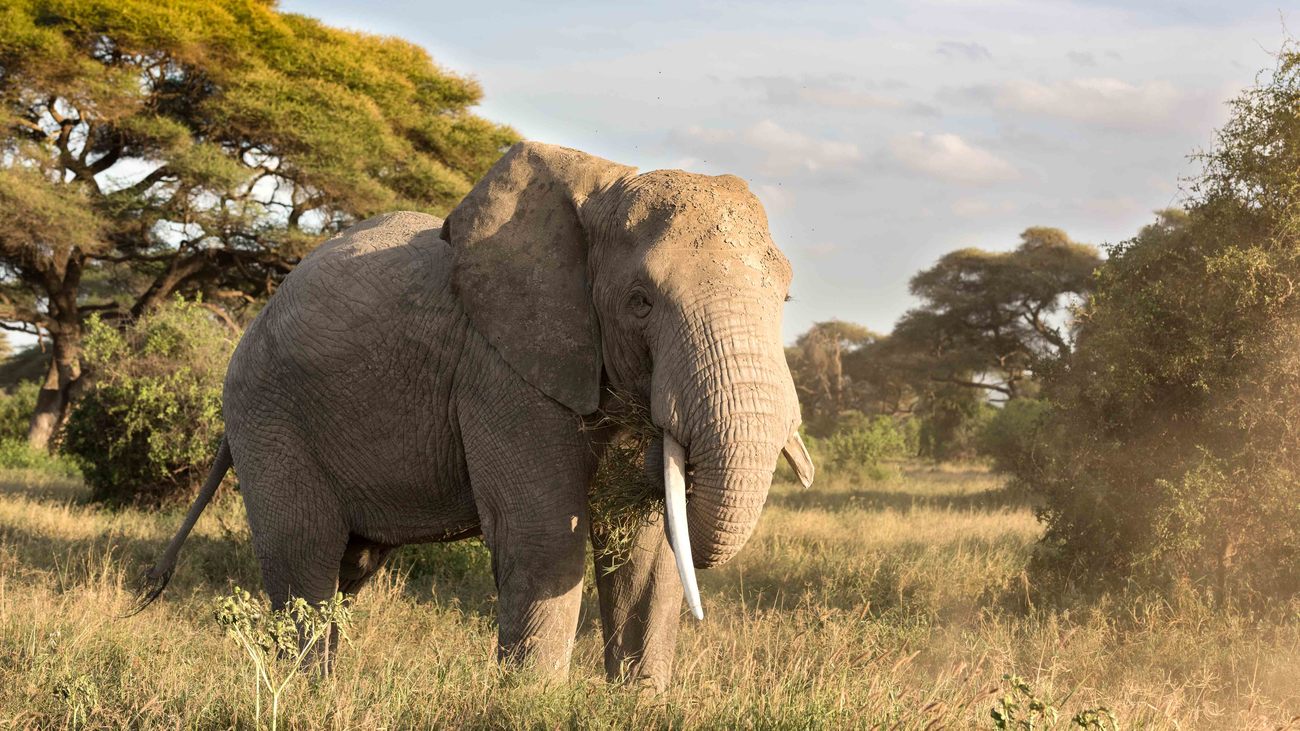Wildlife Crime Prevention - Europe
The European Union is widely considered to be the third largest destination for illegal wildlifelatest guidelines signal an end to ivory trade in the EU
latest guidelines signal an end to ivory trade in the EU

The following is adapted from an original piece published by Politico
When elephants thrive, many other animals do too. Through their daily actions, elephants are vital contributors to maintaining a healthy and balanced ecosystem. Their survival is still under threat, however, as thousands of African elephants are still poached every year for their ivory. Despite increased restrictions around the world, including in the EU, trade in ivory remains confusing and filled with loopholes, thus fueling continued demand.
Today’s European Commission announcement introduces stronger measures on ivory trade than ever before in EU history, and that is excellent news for elephants. The revised legislation and new EU guidance will considerably restrict domestic ivory trade, as well as imports and re-exports of both raw and worked ivory. Only a few exceptions for antiques and some musical instruments will remain.
This announcement is a major achievement for organisations like ours who have been campaigning for a total ban of ivory trade in the EU over the past decade. While this new legislation doesn’t go quite that far, it shows that the EU is finally taking responsibility for the death of thousands of elephants caused by the ivory trade.
IFAW has played a lead role in conservation efforts for many decades, and we initiated discussions that ultimately led to what today is known as the European Union Wildlife Trafficking Action Plan (WTAP). Since then, we spearheaded efforts to fight ivory trade and wildlife trafficking, advocating for the WTAP to be adopted in 2016, including at Member State level. This work led to restrictions in ivory trade in France, the Netherlands, Belgium, Luxembourg and the United Kingdom.
While we collectively can be proud of this milestone and celebrate the fact that the European Commission has stepped up, the work must continue. Elephants are still under threat, and the passing of new restrictions is just one-step toward the protection that is needed.
These new rules set out by the European Commission are a big step forward, and all EU countries will now be called on to implement them. It may take several months before countries can provide the necessary means of control and repression, however, so we must remain vigilant in ensuring that we are not participating in the wildlife trade online or at physical retail outlets.
There are now several upcoming opportunities for the EU and Member States to demonstrate their commitment to protecting elephants and all wildlife, and together help to safeguard the world’s biodiversity (read more). Ultimately, we need to see more political will and faster action as we race to tackle climate change and large-scale biodiversity loss.
EU announces strong measures to restrict ivory trade
The role of cybercrime
If the EU wants to show further commitment, it should also take a firmer stance on wildlife cybercrime. The world’s most endangered species are under threat from online trade. The scale and anonymous nature of online trafficking make it essential that tech companies and national authorities take charge in detecting and disrupting online wildlife criminals.
As a founding member of the Coalition to End Wildlife Trafficking Online, IFAW continues to engage with the worlds’ biggest e-commerce, technology and social media companies to take quick and effective action to remove illegal wildlife products such as ivory from their platforms. In addition, our “cyber spotters” initiative trains citizens on how to identify and report suspicious listings online—a critical tool in the EU’s Digital Services Act of 2020. A dedicated EU Code of Conducts and Guidance on wildlife cybercrime would make the detection of illegal wildlife products and law enforcement easier for all Member States.
With today’s online marketplaces, illegal wildlife trade is often just one click away. Click below for ways to you can join us in saying no to ivory and other illegal wildlife products, and yes to educating your friends and even playing a direct role in reporting potentially illegal advertisements and social posts that you see online.
Room to roam
The alarming surge in poaching and trafficking of protected flora and fauna species affects us at every corner of the globe, from biodiversity, to climate, and through the impact to local communities, such as measurable scarcity in physical and food security.
Our goal at IFAW continues to be to protect and connect critical habitat for elephants and other wildlife, while thoughtfully contributing to human livelihood and the natural resources that thrive alongside. Species are becoming extinct 100 times faster than they would without human impact. Populations of wild animals have dropped to less than half of their numbers in 1970, while the human population has doubled. To protect elephants and the people who live alongside them, we are working on the ground with governments, communities, landowners and wildlife rangers to create the room elephants need to roam. We believe that, to achieve the EU Green Deal and Biodiversity Strategy ‘30x30’ goal (30% of land and sea protected by 2030), the EU must put green diplomacy and dedicated financing at the heart of its work.
Now is our time to come together—around the world—and let our actions speak loudly to help people and animals thrive together.
With these new restrictions on ivory trade, the EU demonstrates it can do the right thing, but it must continue to act for wildlife—and fast. This is vital if we wish for elephant populations and other wildlife species to be protected for future generations.
-Staci McLennan, IFAW EU Office Director
Related content
Our work can’t get done without you. Please give what you can to help animals thrive.